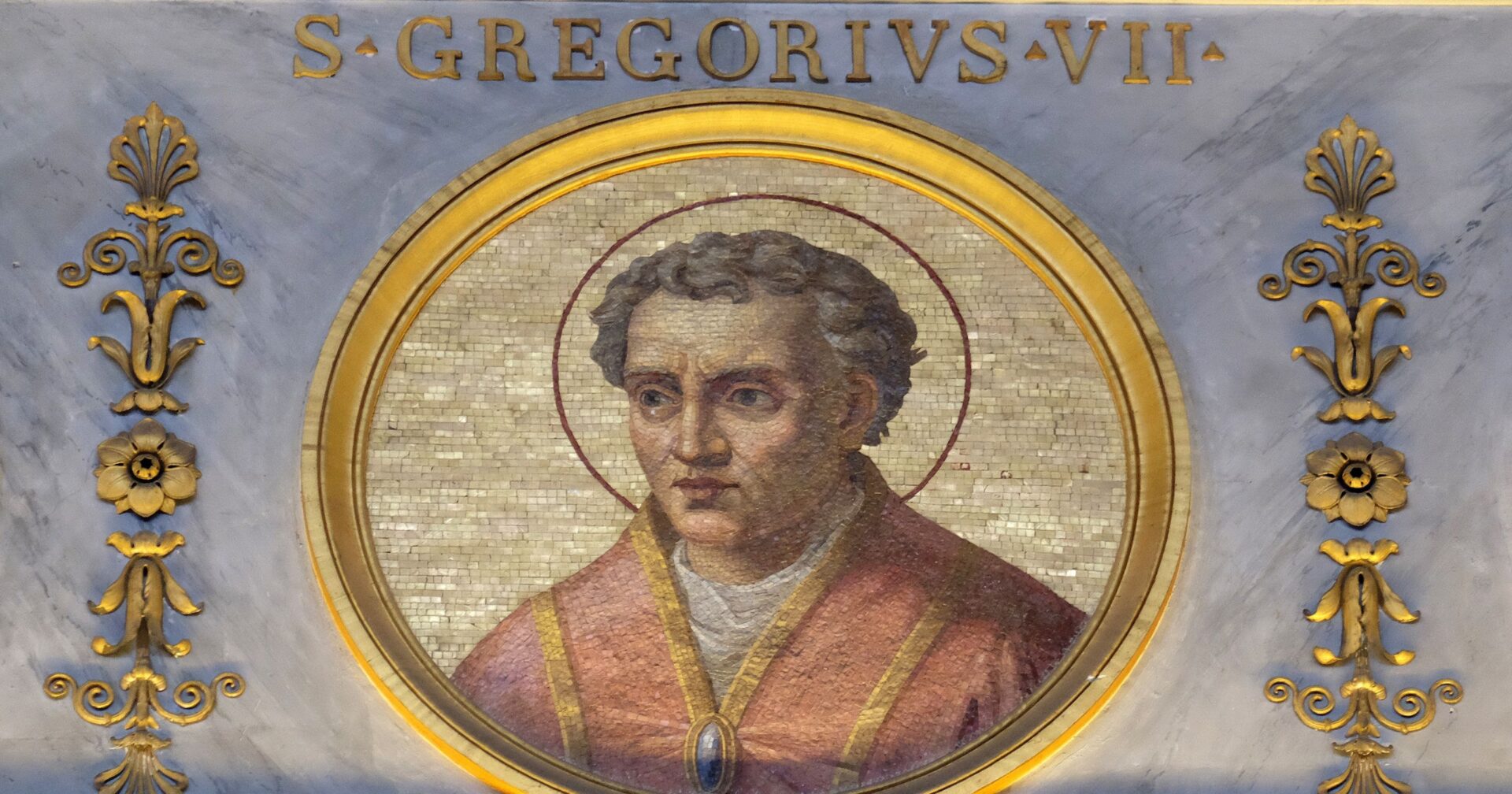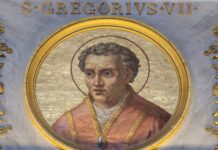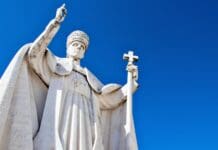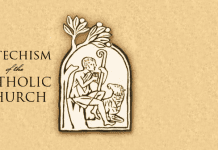In the late 11th century, Pope Gregory VII was embroiled in the Investiture Controversy with King Henry IV over who had the power to choose and install bishops and abbots.
Under his Gregorian reform, Pope Gregory VII wrote his dictatus papae, “papal dictation,” showing he composed the piece himself, found in his papal register under the year 1075.
The Dictatus papae was an unpublished document in the sense it was not known outside of the immediate circle of the Roman curia and was not widely copied or circulated. It contained a compilation of 27 statements of powers reserved for the pope alone.
The document was seen as the strongest argument for papal infallibility and papal supremacy at a time when the Church’s authority to appoint it’s own bishops was being challenged by Henry IV.
The document famously outlined the power of the pope to depose emperors, practically affirming auctoritas, spiritual power, to be greater than imperium, temporal power.
Read below all 27 rights reserved just for the pope:
-
- The Roman Church was founded solely by God.
- Only the Pope can with right be called “Universal”.
- He alone can depose or reinstate bishops.
- All bishops are below his Legate in council, even if a lower grade, and he can pass sentence of deposition against them.
- The Pope may depose the absent.
- Among other things, we ought not to remain in the same house with those excommunicated by him.
- For him alone is it lawful, according to the needs of the time, to make new laws, to assemble together new congregations, to make an abbey of a canonry, and, on the other hand, to divide a rich bishopric and unite the poor ones.
- He alone may use the Imperial Insignia.
- All princes shall kiss the feet of the Pope alone.
- His name alone shall be spoken in the churches.
- His title is unique in the world.
- It may be permitted to him to depose emperors.
- It may be permitted to him to transfer bishops, if need be.
- He has the power to ordain the clerk of any parish he wishes.
- He who is ordained by the Pope may preside over another church, but may not hold a
- subordinate position. Such a person may not receive a higher clerical grade from any other bishop.
- No synod shall be called a “General Synod” without his order.
- No chapter and no book shall be considered canonical without his authority.
- A sentence passed by him may be retracted by no one. He alone may retract it.
- He himself may be judged by no one.
- No one shall dare to condemn any person who appeals to the Apostolic Chair.
- The more important cases of every church should be referred to the Apostolic See.
- The Roman Church has never erred. Nor will it err, to all eternity–Scripture being witness.
- The Roman Pontiff, if he has been canonically ordained, is undoubtedly made holy by the merits of St. Peter, St. Ennodius Bishop of Pavia bearing witness, and many holy fathers agreeing with him. As it is contained in the decrees of Pope St. Symmachus.
By his command and consent, it may be lawful for subordinates to bring accusations. - He may depose and reinstate bishops without assembling a Synod.
- He who is not at peace with the Roman Church shall not be considered “catholic”.
- He may absolve subjects from their fealty to wicked men.
Editorial credit: Zvonimir Atletic / Shutterstock.com


















[…] Solène Tadié Did God Create Evil? – Douglas M. Beaumont at Catholic Answers Magazine The Dictatus Papæ: 27 Powers Reserved Only for the Pope – Billy Ryan at uCatholic The Power of Christ’s Holy Face: A Little-Known Chaplet for […]